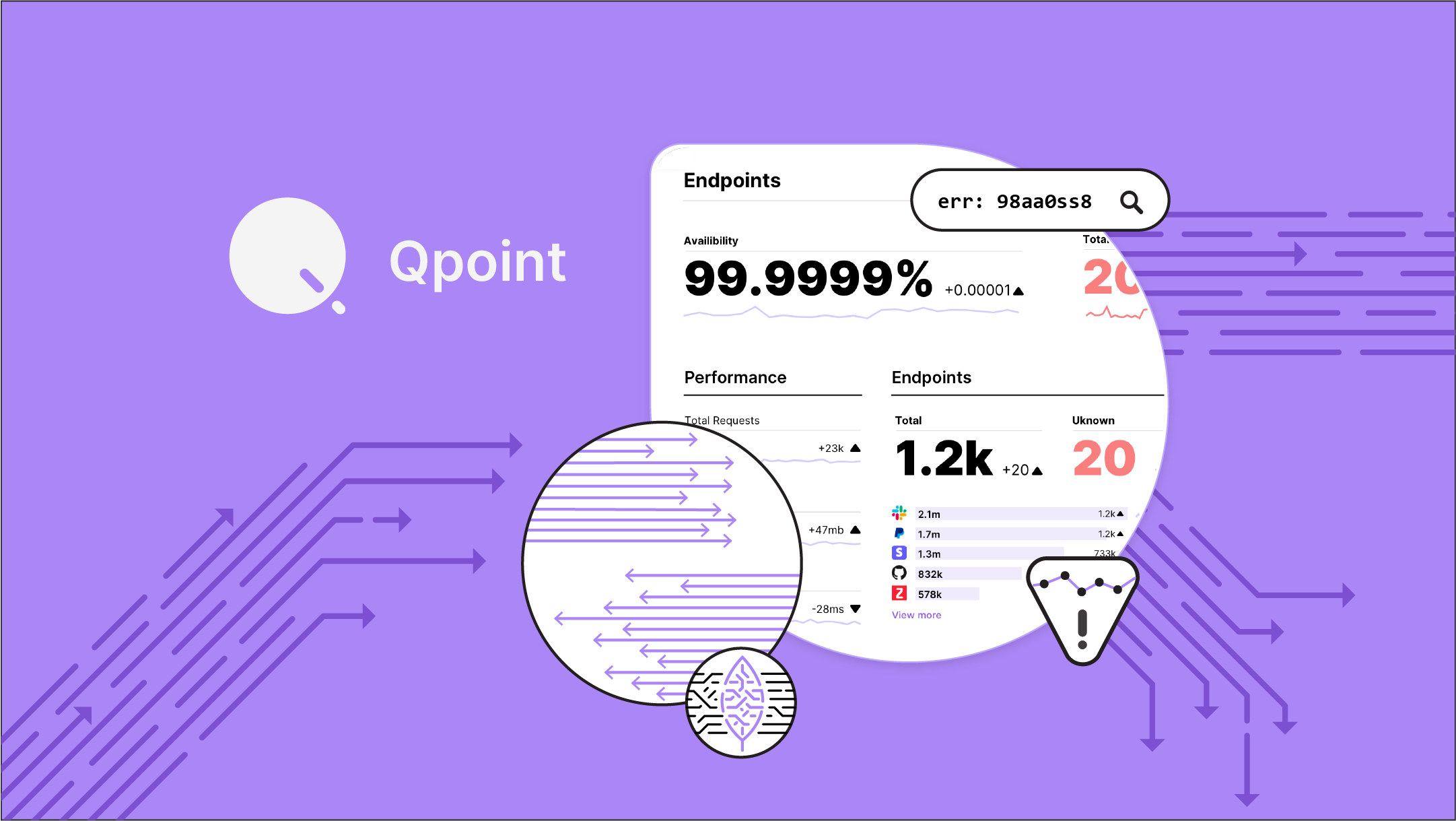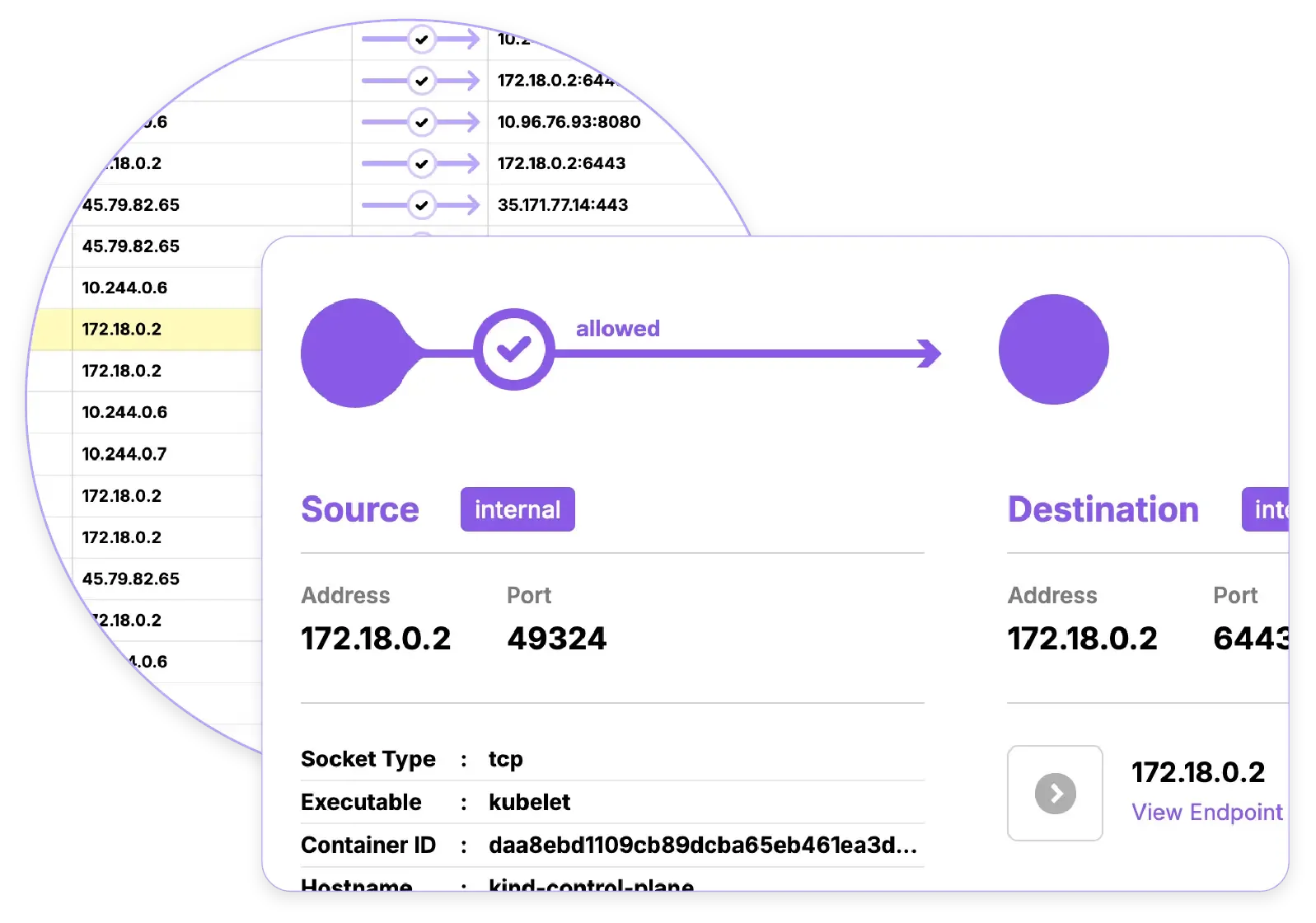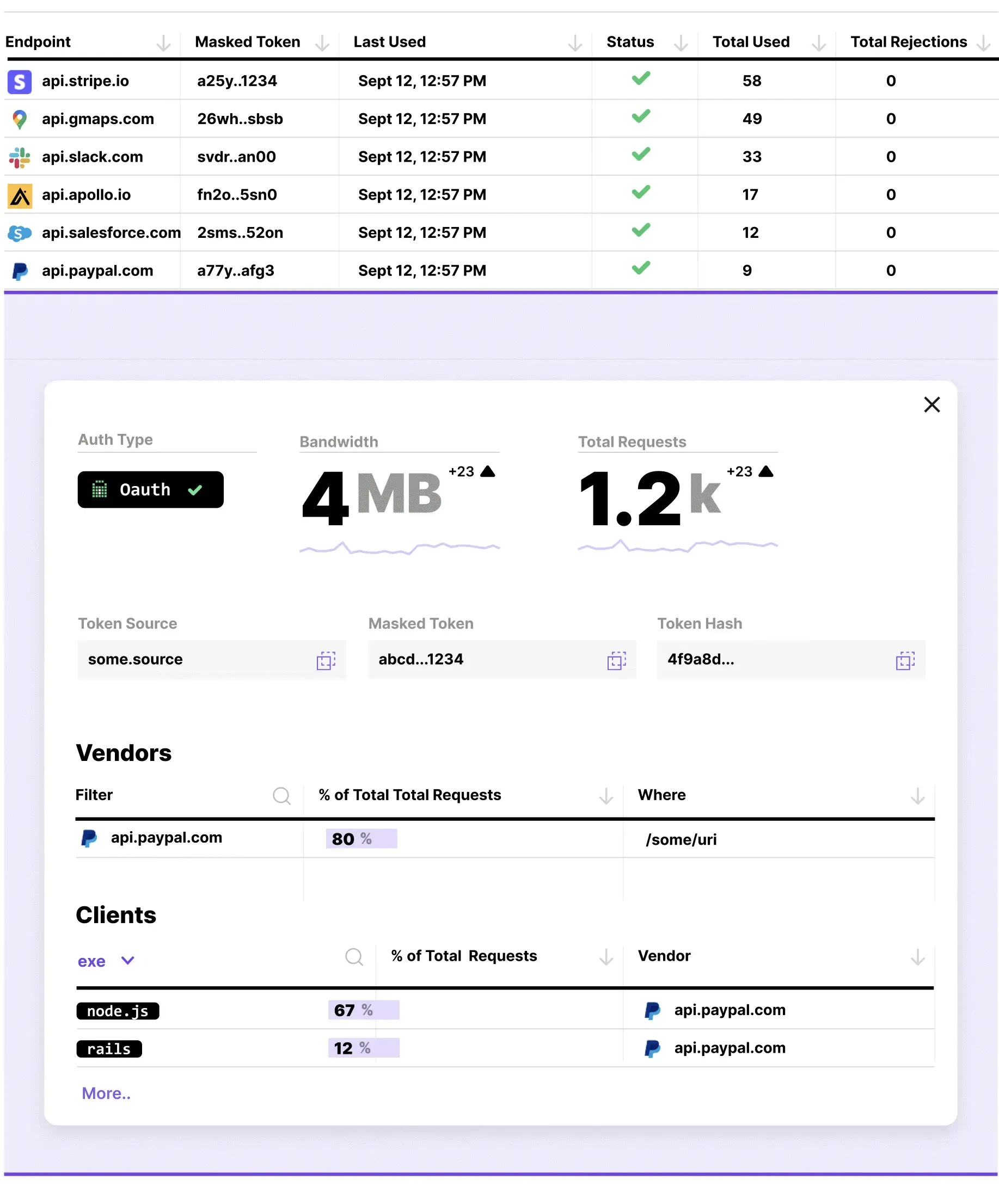What's the difference between my APM tool and eBPF-powered QPoint?


In today's hyper-connected world, production applications depend on external services and APIs to deliver those must-have features. This setup boosts innovation and speeds up time-to-market, but it also brings unexpected operational headaches and security risks that can disrupt reliability and lead to significant downtime and performance issues. While typical APM tools cover general observability, Qpoint zeroes in on external service dependencies, offering unmatched visibility and control with cutting-edge, eBPF technology.
Here’s how Qpoint stands out:
Tailored for External Integrations
Unlike a standard APM tool, Qpoint is purpose built to monitor and secure external service integrations and traffic flows, providing deeper insights and superior control capabilities. If your platform has a growing number of critical external dependencies, this has a major impact on your team's ability to prevent or drastically reduce the impact of a vendor caused outage.
eBPF-Powered with Full Payload Access
Qpoint leverages eBPF technology to deliver unparalleled visibility and control at the kernel level without impacting system performance. Unlike traditional monitoring approaches and APM tools, eBPF allows Qpoint to capture and inspect encrypted traffic payloads directly within the Linux kernel. This provides invaluable insights for audit logging, debugging, and analysis—allowing teams to not only trace external service interactions but also see the actual content of those interactions.
By accessing the full, unencrypted payload, Qpoint can enable superior:
- Audit Logging: Capture detailed records of external service interactions for compliance and accountability, ensuring you can track every request and response.
- Debugging and Root Cause Analysis: Gain deeper insights into issues by seeing exactly what data was sent and received between applications and third-party services, accelerating troubleshooting and pinpointing failures faster.
This level of visibility, combined with the performance efficiency of eBPF sets Qpoint apart from traditional monitoring tools which cannot provide full payload inspection and may introduce significant system overhead.

Data Tagging and Custom Filters
Qpoint’s advanced middleware subsystem lets you set custom tags on each interaction, providing granular filtering for reports and recorded data. This enables more precise debugging sessions and allows you to track bandwidth usage, errors, rate limits, and customer-specific metrics, offering deeper insights than APM solutions.
API Token Management
Qpoint tracks API token usage across external services, allowing for better management of API traffic and rate limits, a feature lacking in APM tools.

Granular Vendor Monitoring and Security Audit Trail
Qpoint enables detailed monitoring of specific vendor interactions, making it a more effective tool to troubleshoot issues with external services. This capability can also help to provide clear evidence of SLA violations to ensure vendor accountability. Generalized observability and APM tools do not provide this level of granularity.
Cloud Bandwidth & Cost Attribution
Qpoint allows businesses to attribute bandwidth usage and cloud costs related to egress traffic and external service usage back to the relevant applications and teams. This can help to optimize cloud spend and is a distinct advantage over APM tools which do not focus on this area.
Gain Better Insight Into Applications with eBPF
Qpoint is purpose-built for monitoring and securing your applications' external service dependencies and traffic flows. With eBPF-powered insights into encrypted traffic at the kernel level, Qpoint gives you next-level audit logging, debugging, and root cause analysis. Custom tagging, API token tracking, and granular vendor monitoring arm your ops team with the tools they need to boost reliability, reduce vendor-related risks, and keep cloud costs in check—delivering more precision than a standard APM tool.
Ready to take control of your external integrations and keep your production applications running smoothly? Book a demo and discover what Qpoint can do for your ops team today!